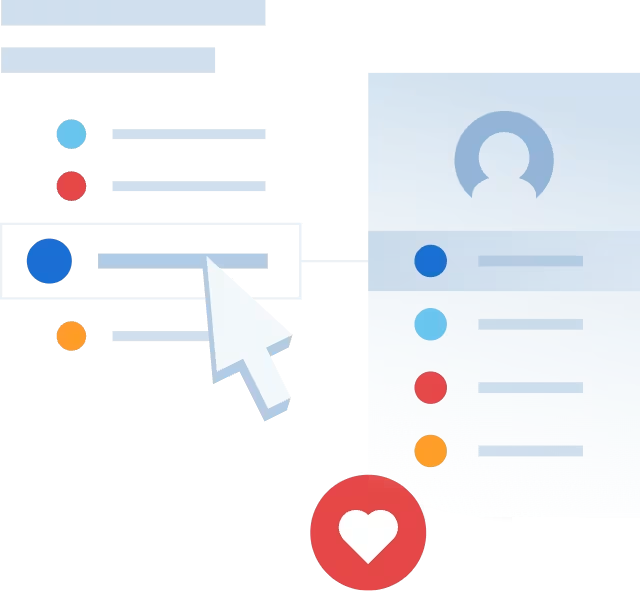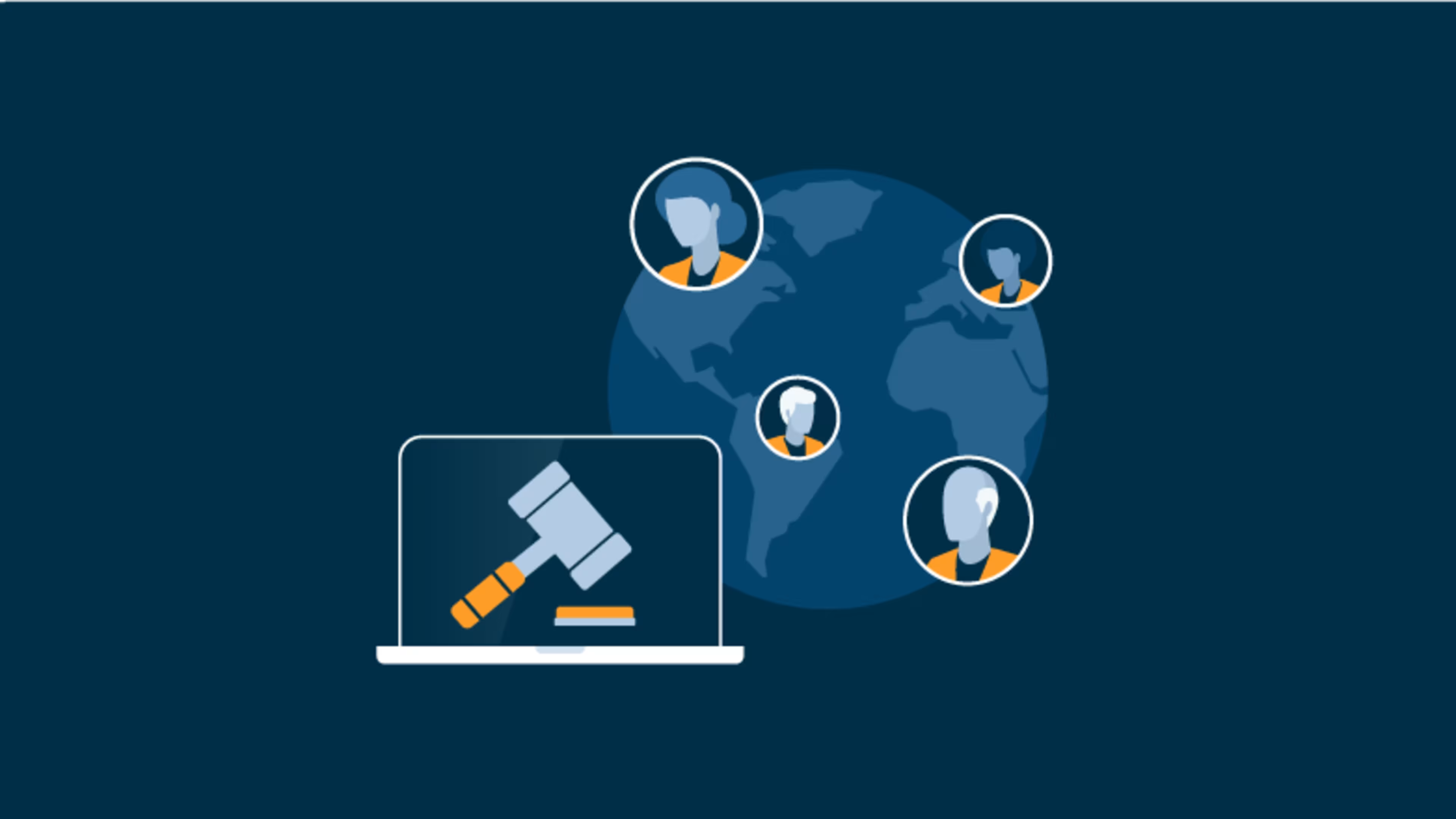Left dusty and vacant, the coveted corner office will be a relic of the past as attorneys (and their clients) continue to embrace remote work and the technology that makes it possible.
The corner office with the view has been a traditional symbol of status and prestige within law firms. The pandemic, however, moved many attorneys and legal professionals from their corner offices and cubicles to their dining room tables or home offices. And some attorneys think it will stay that way.
“Lawyers can spend more time either working ‘on’ the business of law instead of ‘in’ it and more time with their families and loved ones.”
— Rick DeMedeiros, founder of DeMedeiros Injury Law in Atlanta
DeMedeiros and others think that moving forward, lawyers will opt to work remotely and rely on technology to make it possible.
One of the major ways law firms of the future will differ from law firms of the past is how they use (and even embrace) the use of technology and software to help them do their work more efficiently and securely.
Here are three ways software will change the future of law firms and help your firm operate remotely.
1. Software expands your firm’s virtual offerings
"Future law firms will have a much broader virtual offering. Clients will expect their lawyers to leverage technology for the sake of efficiency and convenience."
— Jeffrey McAvoy, lead practice attorney at Conduct Law
During the pandemic, your work went remote. You offered clients virtual services. and attorneys such as McAvoy think many clients will like to keep it that way moving forward. This will give rise to virtual law firms.
Virtual offerings may include:
Attorney-client meetings via video conferencing software
Using a law practice management software platform that offers a messaging feature
More efficient document management with legal case management software
Automating recurring tasks such as invoices
By offering virtual services, and using technology to make it possible, the legal industry will also be able to respond to clients faster than before, which can make for an improved client experience.

Law Ruler users can text with clients in real time through the platform (Source)
Interested in law practice management software? Check out our law practice management software buyers guide to help inform your search.
2. Software helps organize documents
"It’s incredible to see how many law firms are still storing their client data in drawers and manila folders. When the pandemic hit, it forced many older, more established law firms to take a crash course in online communication and data sharing."
— Michael A. Cibik, founder and managing partner at the Law Offices of Cibik & Cataldo
How a law firm manages their documents determines how they manage their cases: A law firm is nothing without documentation. To keep your law firm running smoothly, you have to make sure your practice’s documents are well-organized and safe.
During the pandemic, many law firms ditched their filing cabinets for cloud-based storage that made it easier for remote employees to access documents, and they’ll likely keep these tools around.
Legal document management software and legal case management software platforms allow users to upload and organize documents with tags.
These platforms also typically offer access controls to keep confidential information safe and collaboration tools to allow remote employees to continue working together while apart.
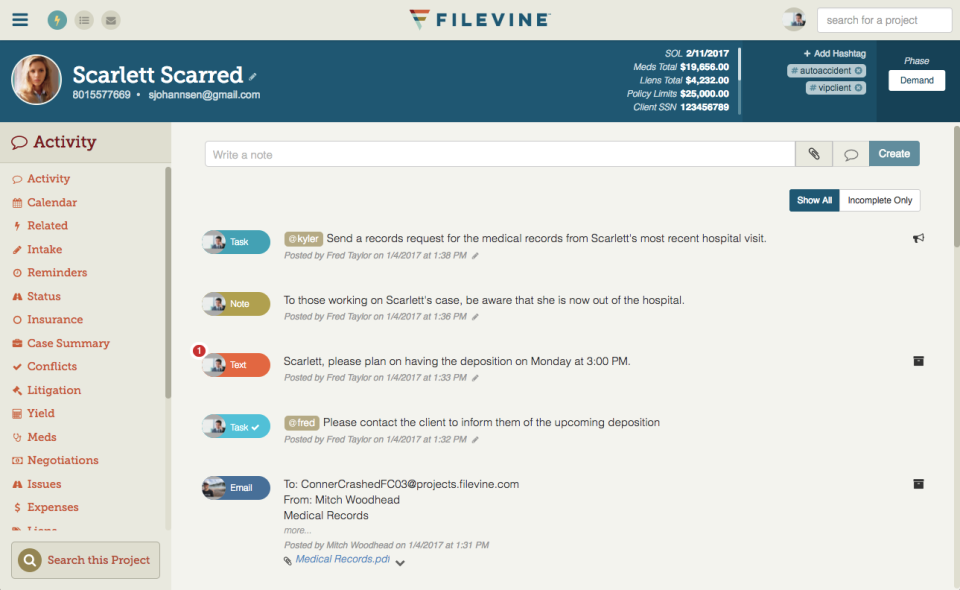
Keep track of all information pertaining to a case or matter, including documents, tasks, and notes in Filevine (Source)
Interested in legal document management software? Check out our legal document management software buyers guide to help inform your search.
3. Software introduces new types of data that can be used in cases
"With remote work now a permanent fixture for many companies, legal teams and CIOs must consider how to extract electronically stored information from locations they previously hadn’t, particularly for litigation e-discovery."
— Scott McVeigh, industry principal at Onna
The legal industry’s new reliance on technology might also expand the types of data law firm leaders manage, keep safe, and use in legal cases. As you introduce new technology to your practice, just be aware of how this might change (and even complicate) things.
For example, McVeigh points out that while using Zoom allowed law firms to operate and collaborate, “countless critical conversations and significant amounts of sensitive information have been generated within the walls of Zoom, creating compliance, risk, and legal concerns.”
Zoom data, for example, is unstructured and multifaceted, which means it may come from one of Zoom’s many tools. This also means Zoom data can be challenging to manage and analyze.
Law firms of the future will likely have an established policy on how to use video conferencing platforms and answers questions such as:
What types of meetings should be recorded?
Where should recordings be stored?
For how long should recordings be stored?
Who should have access to recorded meetings with clients?
Law firms of the future will likely invest in electronic discovery software which can help law firms store data, such as Zoom data, on a cloud-based system.
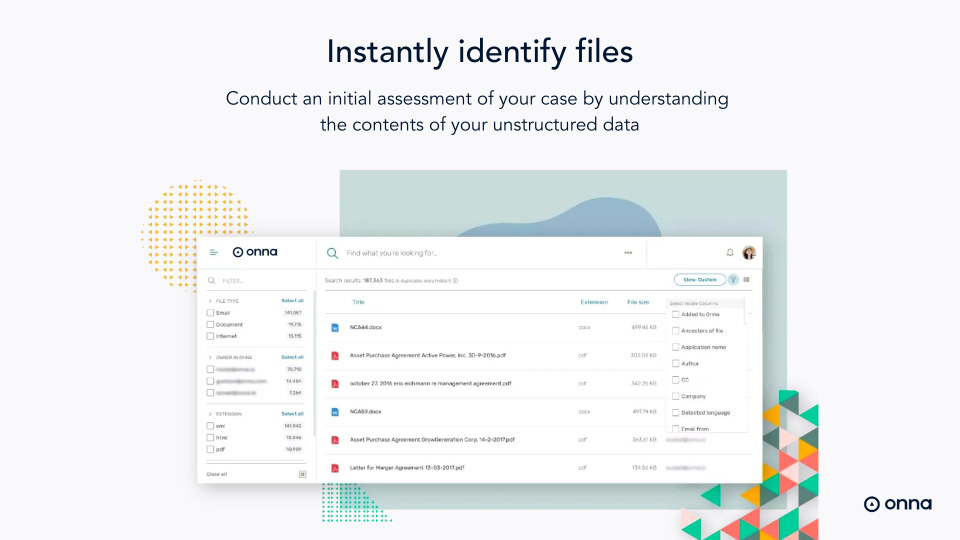
Identify files and make sense of your unstructured data on Onna (Source)
Interested in eDiscovery software? Check out our eDiscovery software buyers guide to help inform your search.
The future of law firms relies on software
Law firms of the future embrace software and become more digitally-minded. Although future law firms are aware of the benefits of software, they also understand the risks.
Going digital can make your practice more vulnerable to cyberattacks, but there are best practices and platforms you can use to keep your firm safe.
And ransomware attacks on law firms might be more common than you think. According to Capterra’s 2021 Legal Management Survey*, one in three (33%) small and midsize law firms have experienced a ransomware incident in just the last 12 months.
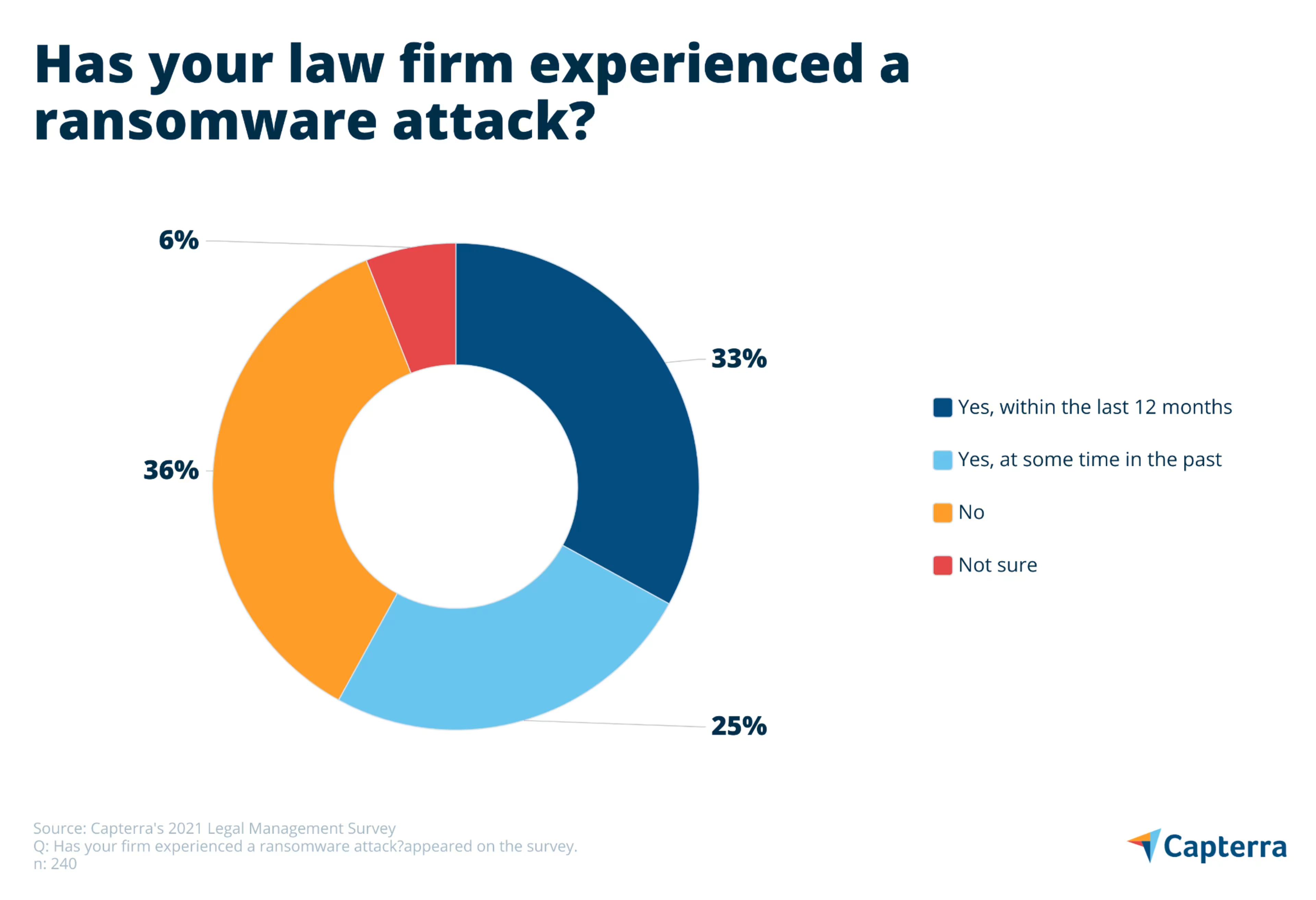
Check out Capterra's Legal Resource Center to explore other related content
